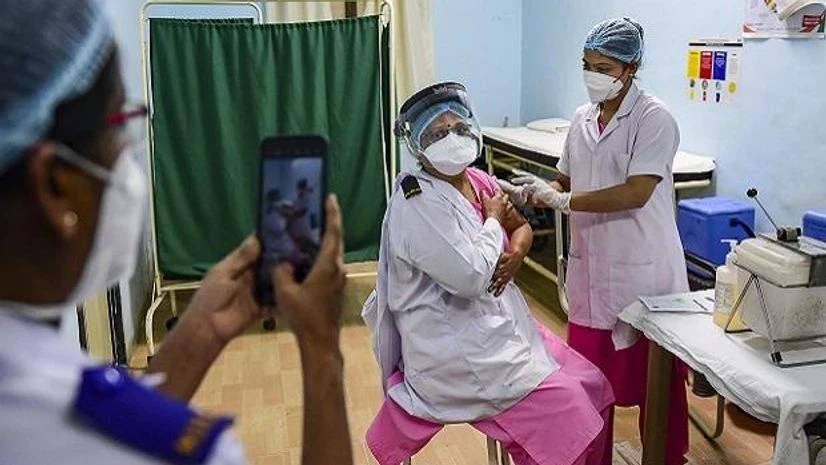Washington [US], January 16 (ANI): As India achieved the milestone of cumulative vaccine coverage of 156 crores on the first anniversary of the nationwide COVID-19 vaccination drive that started on January 16, 2021, Dr Kutub Mahmoood, Scientist and Virologist from Washington, DC told ANI that vaccination is the strongest weapon, adding that the pandemic cannot go on forever, and its end is pretty near.
"So, this cannot go on forever, and that end is pretty soon. I would say there is no winner in this game of chess, this is going to be a draw, where the virus will go in hiding and we actually win, we may come out of hiding behind our facemask. So, we hope to move forward, I think we are getting very close to that. So, I hope as we move forward in this year, probably we will come out of the pandemic very soon," Dr Kutub told ANI.
"There is a pressure on the virus to mutate and to adapt to the changing immunity in humans and then it tries to make these mutants so that it can escape. This is like a game, like a chess game, I would say as an analogy between the virus and the humans. So, that virus is putting out its moves, we as humans are putting out our moves. We have small moves, which are the facemask, hand sanitisers, social distancing. We have weapons that we have used against the virus with the vaccines, the antivirals, and the antibodies," said Dr Kutub.
He further appreciated India for achieving 60 per cent vaccination within a year.
"This is a real great achievement for the country and for the vaccine manufacturers in India. As you know Indian vaccines are globally used. And this time, last year, we were just in the process of getting these vaccines approved through the Indian DCGI for emergency use and in 12 months we have achieved almost 60 per cent vaccination this is a huge achievement for the Indian Government, Ministry of Health and vaccine manufacturers," said the virologist.
More From This Section
On mutation of COVID viruses he said, "If there are any certain mutants coming in, we will not be surprised. I think we should be able to contain it with vaccinations and the key is vaccination again. If the population is vaccinated, that would be my strong message, to get those vaccines and the boosters so that they are protected against any of these variants."
Commenting on a surge in coronavirus cases in India and abroad, amid the spread of the Omicron variant, Dr Kutub said, "Yes, there are some cases where there are reinfections and those are particularly in immune-compromised subjects that have other medical preconditions. We can have boosters to contain virus in those immune-compromised cases."
Speaking on various studies that suggest T cells play an important role in fighting off viruses, Dr Kutub stated, "T cell response analysis has been not seriously investigated, but I think there is a big role of T cells particularly the helper T cells and the establishment of the helper T cells in the subject, because, these T cells will help B cells to make the antibody and these T cells can be cross-reactive also where they can be long lasting T cell immunity and it is very critical that we establish a good cellular immunity with the current with the current vaccine that we have."
Recently, Covaxin manufacture has said that its booster is 90 per cent effective against Omicron. Dr Kutub said that India's unique product Covaxin made by Bharat Biotech has also shown safety in 2-year-old children too.
"Covaxin is inactivated vaccines and this is the traditional way how we make the vaccine is to grow the virus and inactivate the virus and make the vaccines and in a traditional sense that would be my first approach in making the vaccine and Covaxin being an indigenous strain from India and manufactured by the Indian company," said the vitologist.
"I mean this is a uniquely Indian product, which I would like to congratulate the Indian company and the Indian government for moving in this direction for the vision of our Prime Minister. So this is actually a very good vaccine and we have seen the data is coming out from the clinical studies about the safety of this in the very young up to 2 yrs of age," he added.
(Only the headline and picture of this report may have been reworked by the Business Standard staff; the rest of the content is auto-generated from a syndicated feed.)

)
